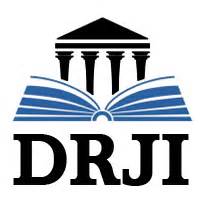EDUKASI DALAM PENGELOLAAN SAMPAH RUMAH TANGGA UNTUK MEWUJUDKAN EKONOMI BIRU DESA RANCABUNGUR
Abstrak
Global waste management data shows that only about 20% of total waste can be recycled or recovered each year. The remaining waste becomes an environmental issue, polluting ecosystems and degrading the quality of ecosystem services. The blue economy is a sustainable economic concept aimed at supporting economic growth, improving public welfare, and preserving environmental sustainability. In Rancabungur Village, the blue economy concept offers a new approach to development that supports economic growth, community well-being, and environmental health. This program aims to provide a better understanding of the importance of waste management, including waste separation and processing it into organic liquid fertilizer and compost. The training was conducted both in-person and online on May 28, 2024, from 1:00 PM to 5:00 PM WIB, utilizing digital platforms to reach a larger audience. The total number of participants was 120, with 50 attending in person and 70 participating online. The results of this activity showed that 88.2% of participants recognized the importance of waste management for creating a healthy and beautiful environment, while 48.5% saw the potential to generate income from waste management. Additionally, 29.1% of participants were interested in waste management practices, 20.6% expressed a need for a trustworthy waste management figure, and 19.1% felt they needed more detailed explanations.
Pengelolaan sampah secara global menunjukkan bahwa hanya sekitar 20% dari total sampah yang dapat didaur ulang atau dipulihkan setiap tahunnya. Sisanya menjadi masalah lingkungan yang mencemari ekosistem dan mengurangi kualitas jasa lingkungan. Ekonomi biru adalah konsep ekonomi secara berkelanjutan untuk mendukung pertumbuhan ekonomi, meningkatkan kesejahteraan masyarakat, serta menjaga kelestarian lingkungan. Di Desa Rancabungur, konsep ekonomi biru menawarkan pendekatan baru untuk pembangunan yang mendukung pertumbuhan ekonomi, kesejahteraan masyarakat, dan kesehatan lingkungan. Pengelolaan sampah organik dapat meningkatkan kesadaran masyarakat dan mengoptimalkan proses daur ulang. Program pengelolaan sampah bertujuan untuk memberikan pemahaman yang lebih baik tentang pentingnya pengelolaan sampah rumah tangga, termasuk memilah sampah dan mengolahnya menjadi pupuk cair organik dan kompos. Pelatihan ini dilaksanakan secara tatap muka dan daring pada tanggal 28 Mei 2024 pukul 13.00 – 17.00 WIB dengan memanfaatkan platform digital untuk menjangkau lebih banyak peserta. Total peserta pelatihan mencapai 120 orang, dengan 50 peserta hadir secara langsung dan 70 peserta mengikuti secara luring. Hasil dari kegiatan ini menunjukkan bahwa 88,2% peserta menyadari pentingnya pengelolaan sampah untuk menciptakan lingkungan yang sehat dan asri, sementara 48,5% melihat potensi menghasilkan pendapatan dari pengelolaan sampah. Selain itu, 29,1% peserta tertarik pada manajemen pengelolaan sampah, 20,6% menginginkan figur pengelola yang amanah, dan 19,1% merasa perlu penjelasan lebih detail.
Kata Kunci
Teks Lengkap:
PDFReferensi
Agustin, H., Sugianto, R., & Syaidi, M. (2024). LIMBAH SAWIT PADA KELOMPOK PETANI MILENIAL ( DESA TABUR LESTARI , SEI MENGGARIS , NUNUKAN , KALIMANTAN Desa Tabur Lestari merupakan satu. 7(2), 336–344.
Aini, N., Hermanto, D., & Winarko, P. (2023). Management of organic waste into liquid fertilizer and compost welcoming the blue economy of Rancabungur. Jurnal Pengelolaan Sumberdaya Alam Dan Lingkungan (Journal of Natural Resources and Environmental Management), 13(2), 327–331. https://doi.org/10.29244/jpsl.13.2.327-331
Assagaf, S. F., Putri, A. A., & Putra, A. D. (2024). PROGRAM RUMAH CERDAS DIGITAL SEBAGAI UPAYA PENINGKATAN LITERASI DIGITAL DI DESA MALLONGI-MALLONGI Student Assessment ( PISA ) yang diterbitkan. 7(2).
Bandung, K., Barat, J., Sulaksana, N., Zakaria, Z., Paramarta, P., Rendra, R., Sulastri, M., Terapan, D. G., Geologi, F. T., & Padjadjaran, U. (2024). SOSIALISASI PENGELOLAAN SAMPAH DI RANCAEKEK KULON , terbatasnya Tempat Pembuangan Sementara. 7(2).
Buneviciene, K., Drapanauskaite, D., Mazeika, R., & Baltrusaitis, J. (2021). A Mixture of Green Waste Compost and Biomass Combustion Ash for Recycled Nutrient Delivery to Soil. Agronomy, 11(4). https://doi.org/10.3390/agronomy11040641
Burgess, M. (2019). Five rules for pragmatic blue growth. Marine Policy, 87, 331–339. https://doi.org/10.1016/j.marpol.2016.12.005
Chew, K. W., Chia, S. R., Yen, H.-W., Nomanbhay, S., Ho, Y.-C., & Show, P. L. (2019). Transformation of Biomass Waste into Sustainable Organic Fertilizers. Sustainability, 11(8). https://doi.org/10.3390/su11082266
Faisal, F., Diningrat, D. S., Siregar, B., & Budiarta, K. (2019). Utilization of Organic Waste To Organic Fertilizer in the Elementary Schools of Sijunjung District. Journal of Community Research and Service, 3(2), 98. https://doi.org/10.24114/jcrs.v3i2.16060
Indartik, S. E. Y., Djaenudin, D., & Pribadi, M. A. (2020). Penanganan Sampah Rumah Tangga di Kota Bandung: Nilai Tambah Dan Potensi Ekonomi. In Jurnal Penelitian Sosial dan Ekonomi ….
Kumaat, E. J., Manembu, I. S., Mambu, S. M., & Mangindaan, G. M. C. (2023). Sustainable Campus Through Organic Waste Management Program Implementation. Journal of Sustainability Perspectives, 581–586. https://doi.org/10.14710/jsp.2023.21647
Mabecua, F., Schwede, S., Lucas, C., & Klintenberg, P. (2021). Agro-Waste, a Solution for Rural Electrification? Assessing Biomethane Potential of Agro-Waste in Inhambane Province, Southern Mozambique. Water, 13(7). https://doi.org/10.3390/w13070939
Mulyana, R., Daryanto, E., Nugrahadi, E., Jubaidah, J., & Selly, R. (2020). Increasing Students’ Environmental Education and Awareness Through Campus Owned Waste Management Unit. January. https://doi.org/10.4108/eai.16-11-2019.2293146
Nizar, M., Munir, E., & Munawar, E. (2019). Manajemen Pengelolaan Sampah Kota Berdasarkan Konsep Zero Waste : Studi Literatur. Pengabdian Kepada Masyarakat, 7(2011), 93–102.
Prasetyo, A., & Arifin, M. Z. (2020). Analisis biaya pengelolaan limbah makanan restoran. books.google.com.
Rahayu, L., Kamardiani, D. R., & Nurusman, A. A. (2023). Utilization of Household Organic Waste to Liquid Organic Fertilizer with the Stacked Bucket Method. Proceeding International Conference of Technology on Community and Environmental Development, 1(2), 580–587. https://doi.org/10.18196/ictced.v1i2.74
Rahmawati, C., Meliyana, M., Yuliana, Y., & Zain, H. (2019). Pelatihan Software Mendeley Dalam Peningkatan Kualitas Artikel Ilmiah Bagi Dosen. JURNAL PENGABDIAN KEPADA MASYARAKAT. https://doi.org/10.30999/jpkm.v8i1.200
Setiawan, D., Hamzah, H., & Arlenny, A. (2019). PELATIHAN MS.WORD & MENDELEY UNTUK PENULISAN KARYA ILMIAH DOSEN FAKULTAS TEKNIK UNILAK. Dinamisia : Jurnal Pengabdian Kepada Masyarakat. https://doi.org/10.31849/dinamisia.v3i1.2215
Sharp, A., & Sang-Arun, J. (2022). A Guide for Sustainable Urban Organic Waste Management in Thailand: Combining Food, Energy, and Climate Co-Beneets Supporting organization Asia-Pacifi c Network for Global Change Research (APN). http://www.iges.or.jp
Song, Q. (2019). Minimizing the increasing solid waste through zero waste strategy. Journal of Cleaner Production, 104, 199–210. https://doi.org/10.1016/j.jclepro.2014.08.027
Yakkou, L., Houida, S., Chelkha, M., Bilen, S., Raouane, M., Amghar, S., & El Harti, A. (2024). Chapter 2 - How do earthworms affect the microbial community during vermicomposting for organic waste recycling? In K. Huang, S. A. Bhat, F. Li, & V. Kumar (Eds.), Earthworm Technology in Organic Waste
DOI: https://doi.org/10.24198/kumawula.v8i1.57089
Refbacks
- Saat ini tidak ada refbacks.
Kumawula: Jurnal Pengabdian kepada Masyarakat Terindeks Di:

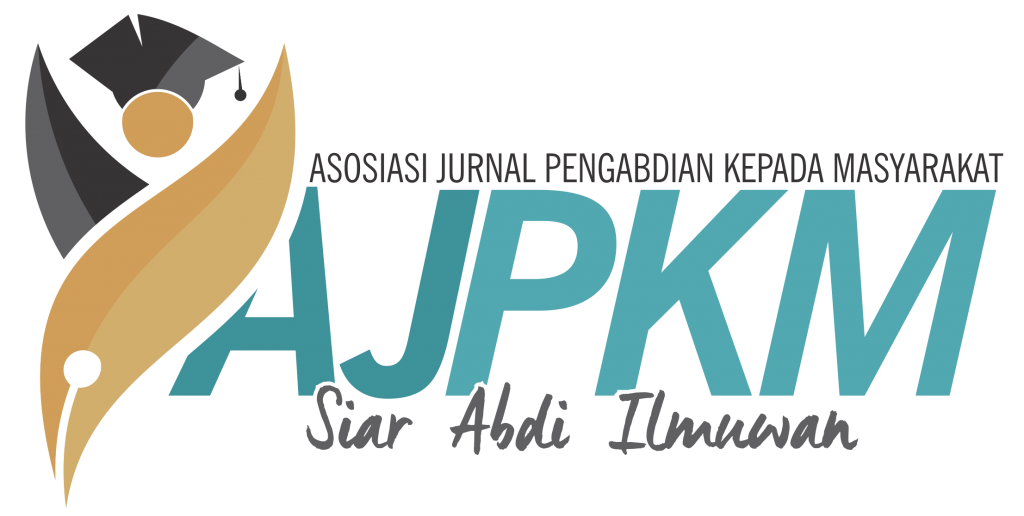
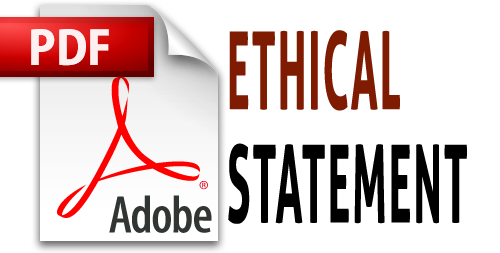
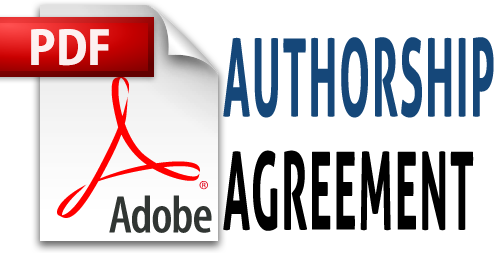
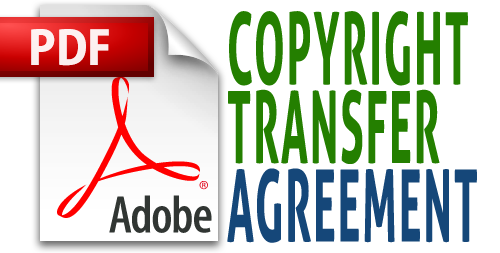






21.png)









